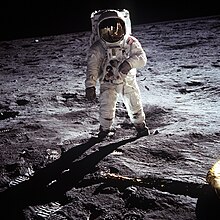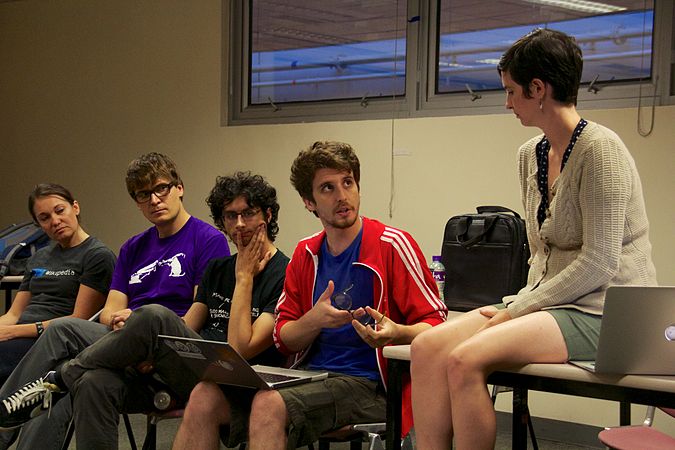Chapters Dialogue/Insights/Hiding, insecurity and exploring new territory/bg
Как Фондация Уикимедия гледа на сдруженията? The Wikimedia Foundation (WMF) puts huge efforts into improving the projects and making them even more successful. Among other things, they maintain the gigantic volume of traffic, work steadily on improving the platforms and solve highly complex legal issues in order to defend the idea of Free Knowledge. The WMF is facing a lot of pressure from the public and needs courage and strength to defend and protect the values of Wikimedia. Besides these responsibilities, it is also the leading grant-making organisation in the global movement. From grants for individuals to annual plan funding for Wikimedia organisations, the WMF disseminates the money that has been entrusted to the movement by millions of donors. The WMF’s main value therefore is donors’ trust and its main task is to treat donor’s money responsibly and to protect the Wikimedia projects, brand, trademarks and integrity. Seen from this perspective, Chapters could be a risk: Certain actions could do unintentionaly harm to the brand, donors’ money could be spent in an irresponsible way, governance issues or another “scandal in Wiki-land” could affect the reputation of the whole movement. In order to fulfill its main responsibilities, the WMF sometimes needs to take actions that are not always in the interests of a Chapter, but that are reasonable considering its position and duties. One has to consider that the WMF is an evolving organisation too. The movement grew quickly, and so did the number of affiliates, the funds that needed to be administered and the projects that required attention. The complexity grew tremendously and due to its global, high-impact activities, all sorts of emerging challenges needed to be tackled. The WMF always tried to do the best possible job, but it wasn’t perfect either: some decisions could have been based on a broader dialogue and mutual empathy; others were perceived as being very poorly communicated. This fuelled the perception of the WMF as being unapproachable, a bit unpredictable, even “mean” towards its Chapters. Това, което прави нещата още по-сложни, е фактът, че всяко сдружение се занимава с различни дейности и е поставено в силно индивидуален контекст. Следователно, ФУ се занимава с четиридесет организации, които не си приличат. Но ФУ трябва да има общ поглед върху нещата и не винаги може да предвиди индивидуалното положение на всяка една организация. Скриване и несигурност В резултат на това, някои от сдруженията не бяха сигурни за това как ги възприема ФУ. “Дали разбират положението ми и моите нужди?” “Дали въобще им пука за това?” “Дали ценят работата ми?” “Вярват ли ми?” These questions remained unanswered and were therefore causing insecurity. Gossip started, bonds were formed and a gap was created: there is “this WMF” that is a big, powerful organisation, far away in San Francisco. This distance was perceived not only on a geographical level, but also emotionally. The ongoing insecurity of Chapters and the perceived power of the WMF led to a couple of Chapters in effect hiding away. “Rather than being on the radar, I’d better stay quiet and safe”. Some Chapters, even if it wasn’t a conscious choice, started building walls to hide behind. Different languages, time zones and a lack of face-to-face communication contributed to this mismatch. And although many things have changed for the better, the old narrative is still present in the heads of some people. Even if communication and support have improved over the years, old sores reopen quickly. Проучване на нови територии Сдруженията са наясно с факта, че са възприемани като риск, а това ги поставя в много неудобно положение. Те осъзнават, че трябва да докажат, че са достойни в тях да бъде инвестирано, и те са готови да го докаже - но как? The activities of Wikimedia can be described as exploring entirely new territory. The movement is doing things no one has ever done before, and there are no books out there that will just tell them what to do. Instead, it’s about trial and error. All organisations need to experiment in order to create space for new ideas and innovation and to explore what approaches are meaningful and reasonable in their individual context. They need to work out: What are the right things to do? This is not so easy, as there is a sense of insecurity among Chapters considering their recognition and appreciation by the WMF. As a consequence, Chapters are instead sticking to the stuff others have done that has received a degree of approval, recognition and funding. After all, that seems to be a safe bet. People don’t want to be too much on the radar with new experiments. This again is at odds with their wish to experiment and to create activities that suit their unique context and their corresponding needs. How does this go together with the movement’s claim “Be Bold!”? Chapters need to balance experiments carefully with those “safe bets” – but it is a challenging task. It is not only Chapters struggling to define their goals, but also the WMF. In fact, the entire movement needs to figure out what it wants to achieve and how this can be done. So far, the common ground is created by the movement’s claim “Imagine a world in which every single human being can freely share in the sum of all knowledge”. Yet it can be interpreted in several ways. Until now, there has been no obvious agreement on a common interpretation. Even basic terms like “volunteer”, “community” and “impact” have been used in various ways by different interviewees. Considering the fact that these are three of the most used vocabulary in the movement, it’s understandable that people struggle with defining the essentials. |
Learn more about
Or go back to
|



